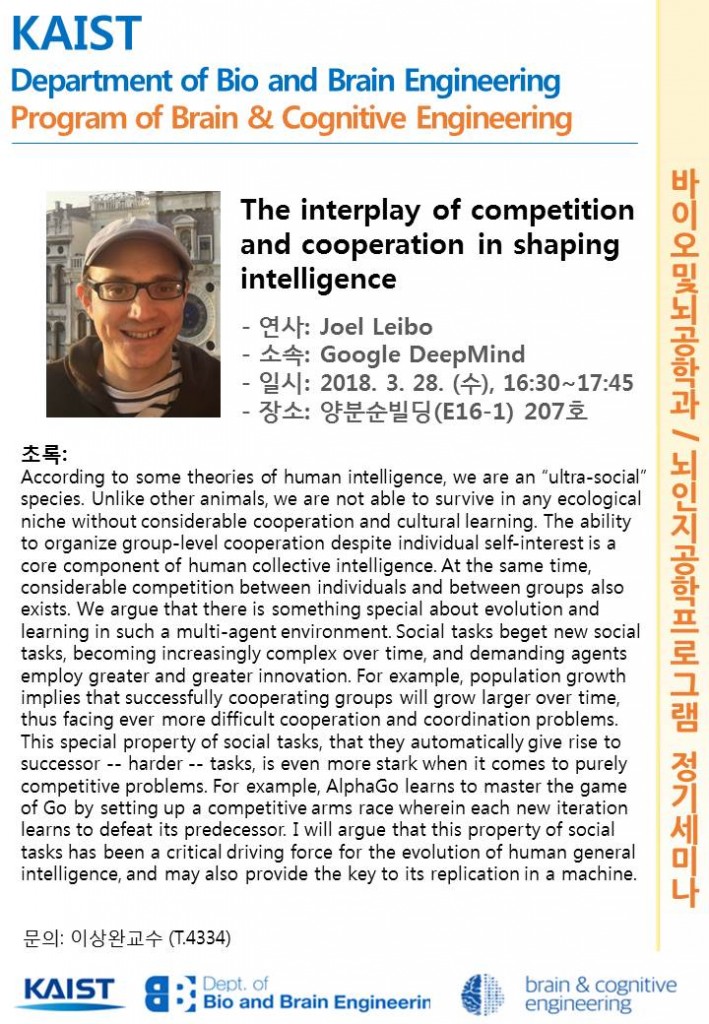| 연사 | Joel Leibo |
|---|---|
| 소속 | Google DeepMind |
| 일시 | 2018.03.28 PM4:30~5:45 |
| 장소 | 양분순빌딩. #207 |

Speaker: Dr. Joel Leibo, Ph.D. (Google DeepMind)
Date & Time: March 28 (Wed), 4:30PM~5:45PM
Venue: YBS Bldg. (E16-1), Rm#207
Abstract:
According to some theories of human intelligence, we are an “ultra-social” species. Unlike other animals, we are not able to survive in any ecological niche without considerable cooperation and cultural learning. The ability to organize group-level cooperation despite individual self-interest is a core component of human collective intelligence. At the same time, considerable competition between individuals and between groups also exists. We argue that there is something special about evolution and learning in such a multi-agent environment. Social tasks beget new social tasks, becoming increasingly complex over time, and demanding agents employ greater and greater innovation. For example, population growth implies that successfully cooperating groups will grow larger over time, thus facing ever more difficult cooperation and coordination problems. This special property of social tasks, that they automatically give rise to successor — harder — tasks, is even more stark when it comes to purely competitive problems. For example, AlphaGo learns to master the game of Go by setting up a competitive arms race wherein each new iteration learns to defeat its predecessor. I will argue that this property of social tasks has been a critical driving force for the evolution of human general intelligence, and may also provide the key to its replication in a machine.






